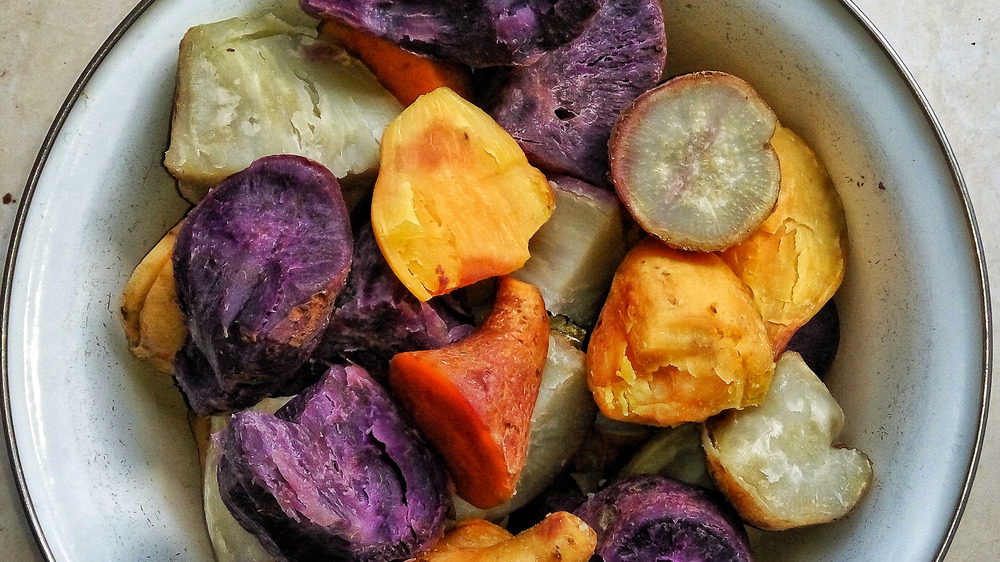You Should Be Eating More Yams. Here's Why
When you think of root vegetables, you likely think of sweet potatoes, red potatoes, carrots or turnips. But there's one veggie in the same family that often gets overlooked: yams. While the unique tuber often gets lumped in with sweet potatoes, the two vegetables are actually completely different. Unlike sweet potatoes — which, as the name suggests, have a distinct sugary flavor — yams aren't as sweet and actually taste more like russet potatoes. They also have skin that looks more like tree bark, as opposed to the smooth brown skin of a sweet potato.
Popular in Caribbean and African dishes (and popular on some Thanksgiving tables in the U.S.!), yams are a delicious side dish. Not only that, but they're also good for you. If you've wandered past the piles of this veggie in your grocery store's produce section, here's why you might want to stop and snag a few yams for yourself next time.
Yams are full of micronutrients
Yams contain a lot of things that are good for your body, like fiber (which is necessary for gut health) and complex carbs (which supply steady energy and are digested slowly). The root veggie is also packed with micronutrients, specifically vitamins C and B6. In fact, just one cup of yams can provide you with 30% of your daily recommended intake of vitamin C and 15% of your vitamin B6 requirement.
But what do those micronutrients do and why are they so important to incorporate into your diet? Vitamin C is an antioxidant that can help your body fight off infections and heal wounds, while vitamin B6 performs a lot of functions, from regulating your mood to helping your body absorb protein better. Those aren't the only vitamins that yams will give you either. The tubers also have a significant amount of vitamin A (which boosts your immune system) and potassium (which can control and improve your blood pressure).

